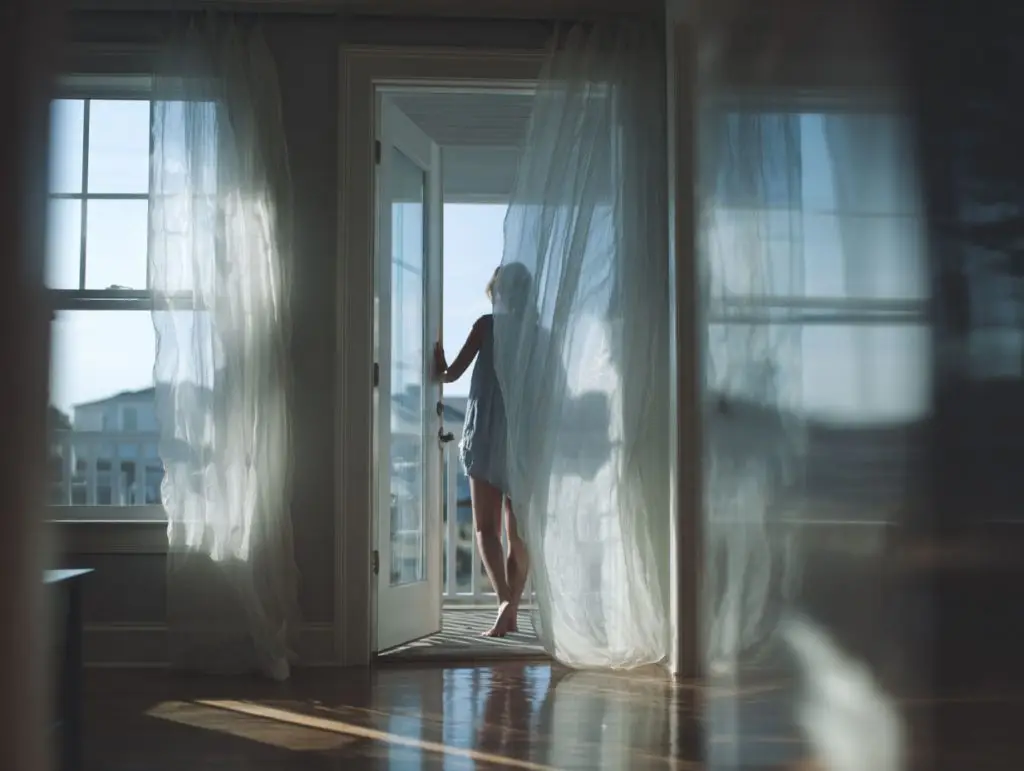
The Comfort of Scent
For years, I thought a clean home had to smell like something — lemon, linen, ocean breeze, lavender.
Every time I finished cleaning my Destin home, I’d spray the air, light a candle, plug in an air freshener, and wait for that instant calm that only “fresh scent” could bring. It became part of the ritual — if it didn’t smell clean, it probably wasn’t.
But over time, I noticed something strange. The air felt heavy after cleaning. My head would ache slightly, and the smell lingered even when windows were open. My house didn’t smell dirty — it just didn’t smell real.
When “Fresh” Became Fatigue
It hit me one evening when a friend stopped by.
“You always have that same smell,” she said, smiling politely. “It’s nice… but strong.”
Strong. That word stuck.
I started realizing how many scents layered inside my home: citrus from the kitchen cleaner, vanilla from the candle, pine from the floor spray, and something floral from the laundry. None of them were bad — but together, they built an invisible fog.
The worst part? I’d stopped noticing. My nose had adapted, but the air hadn’t changed.
The Hidden Cost of Artificial “Freshness”
When I began reading about indoor air quality, I discovered that many “fresh” fragrances do the opposite of what they promise.
Most aerosol sprays and plug-ins don’t clean the air — they mask it, mixing volatile compounds with dust and humidity. In coastal climates like Destin’s, where the air is already thick with moisture, those particles linger longer.
Instead of freshness, I was slowly coating every surface — even fabrics — with synthetic oils that trapped more dust and odor over time. I wasn’t making my home cleaner; I was perfuming the problem.
The Moment of Realization
The turning point came when Sharky’s team deep-cleaned my living room.
When they finished, the air smelled like nothing — not flowers, not citrus, not even detergent. Just… air.
And it felt incredible.
It was the first time I realized that the cleanest air has no scent at all.
The First Step — Letting the Air Be Itself
When I decided to stop masking smells, I thought it would make my home feel empty or dull. Instead, it felt alive.
The first thing I did was unplug every air freshener, toss the aerosol sprays, and put away the perfumed candles.
Then I opened every window, even though it was humid. Within minutes, the air changed — not in scent, but in texture. It moved again.
That’s what Sharky’s team kept telling me: stale air doesn’t smell bad — it just doesn’t move.
And in Destin’s coastal humidity, still air is the perfect trap for every odor molecule that cleaning can’t reach.
Step 1: Start With Ventilation, Not Fragrance
Now, the first “cleaning task” I do isn’t wiping — it’s airing out the space.
Ten to fifteen minutes of cross-ventilation every morning, windows wide open, ceiling fans on low.
Even in humid weather, that brief air exchange removes the gases and moisture that keep smells hanging around.
When Sharky’s professionals clean, they do the same: before any product touches a surface, they refresh the air. It makes every other step more effective.
Step 2: Tackle the Real Sources of Odor
Once the fake scents were gone, I could finally smell what needed fixing.
- Drains: I pour a mix of vinegar and warm water weekly — it neutralizes trapped bacteria.
- Trash cans: I rinse and dry them before inserting a new bag. No more layering odors.
- Upholstery and fabrics: I vacuum and occasionally steam-clean instead of spraying “fabric refreshers.”
- Fridge seals and dishwasher filters: I wipe with a 1:3 vinegar solution — that’s where “mystery smells” hide.
Each of these small tasks made the air neutral — not perfumed, not chemical. Just breathable.
Step 3: Control Humidity — the Invisible Fragrance Magnet
In Destin, humidity is the silent villain of air freshness.
Too much of it and every scent — detergent, candle, even cooking — lingers longer than it should.
Now I keep a simple hygrometer on my shelf.
If humidity goes over 55%, I run a dehumidifier or the AC fan for a short cycle.
Once the air dries slightly, every room smells cleaner — because molecules finally have space to disperse.
Step 4: Natural Neutralizers, Not Cover-Ups
Instead of fragrances, I switched to simple natural odor absorbers:
- Bowls of baking soda near trash and shoes.
- Activated charcoal bags in closets.
- A small HEPA purifier in the living room.
They don’t add scent — they just quietly remove it.
For subtle freshness, I sometimes simmer citrus peels and cloves on the stove. The scent fades quickly, leaving the air crisp — not perfumed.
Step 5: Redefining “Clean Air”
The hardest part wasn’t letting go of scent — it was letting go of the habit.
Now, when guests walk in and say, “It just smells… nice in here,” I know they don’t mean lemon or lavender. They mean it smells like nothing is trying to hide.
That’s the Sharky standard I try to live by now:
Real freshness isn’t what you smell. It’s what you don’t.
Read also: How I Ruined My Surfaces Trying to Keep Them Clean


